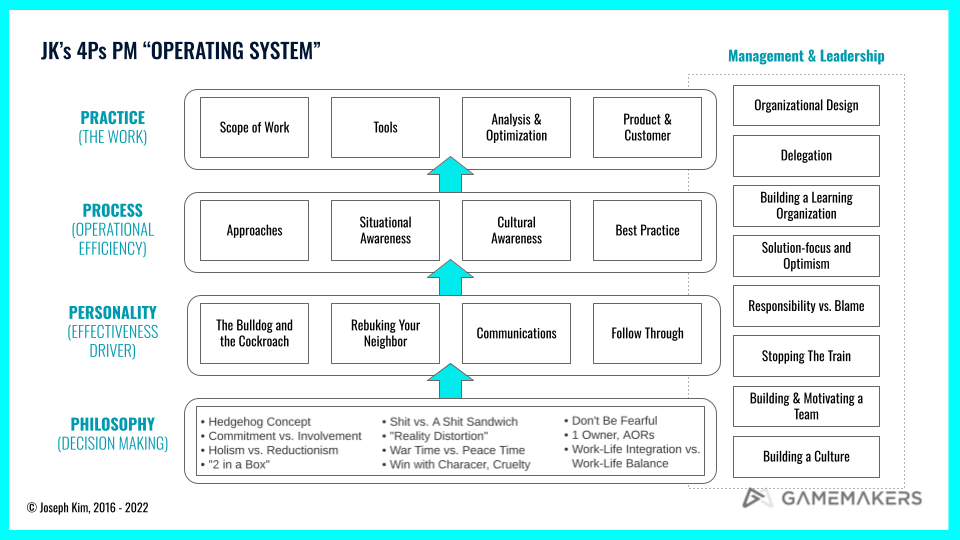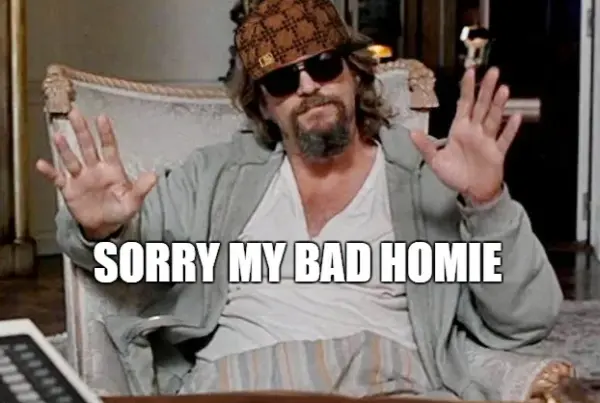What separates a great product manager from a merely competent one? In game development, the difference isn’t just about execution—it’s about driving vision, alignment, and impact. In this post, I break down the key traits that define top-tier PMs, the common pitfalls that hold others back, and how to elevate your craft to deliver real value.
🎧 Listen on Spotify, Apple Podcasts, or Anchor ← Subscribe now!
📺 Subscribe to GameMakers on YouTube
The PM 4Ps Operating System offers a structured way of viewing what kinds of capabilities you will need to become a strong product manager.

The framework is divided into four layers of capabilities (Practice, Process, Personality, and Philosophy).
Let me describe the layers starting from the bottom up. I start there as the lower layers are more critical and help inform how you should develop the upper layers.
Note that this framework is specific to a person or role. You can customize it to be more appropriate for your specific situation.
- Philosophy (Decision Making): I emphasize the importance of a strong philosophical foundation. By adopting core principles, you will have a philosophical basis, aka “values” in the Ray Dalio sense, that can really help align and make your decision-making process more grounded and faster.
- Personality (Effectiveness): I’ve found this is one of the most difficult aspects of being an effective PM. Unlike engineering or other disciplines, you have to motivate and coordinate. Further, you are the most responsible for “stopping the train” when you see a train wreck clearly on the horizon. Many super smart and talented PMs will never be truly effective unless they have the right personality to deliver hard messages or push back. The most difficult aspect of PM is often “doing the hard thing” which is often a personality issue.
- Process (Operational Efficiency): The process layer refers to the processes and practices you use to do the work. A great PM will always look for ways to improve and should have a solid set of best practices, a willingness to learn more, and the ability to apply best practices depending on situational context.
- Practice (Tools): Mastery of tools is crucial. The best PMs will learn all of the major tools and understand the tradeoffs with each one. They will also learn how to potentially apply concepts or lessons from one tool to another. This applies to any discipline, for game developers who use Unity, to be better you should also learn Unreal and take lessons from one to the other. Similarly, a PM who only knows Jira is lazy and not doing their job.
As mentioned, the specific concepts and examples I give in the presentation speak to how I view product management and what I’ve found effective over my career. For you, as a PM or if you are coming from another discipline, you should appropriately modify the concepts here for your own situation.
Good luck!
Discover more from Joseph Kim
Subscribe to get the latest posts sent to your email.






